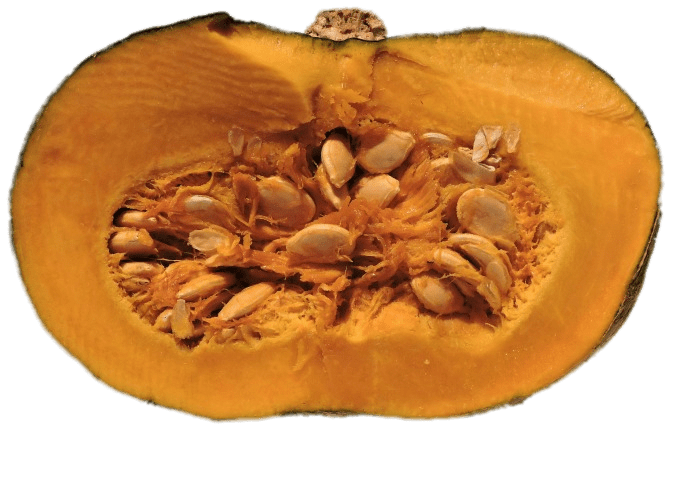
This image has format transparent PNG with resolution 700x482.
You can download this image in best resolution from this page and use it for design and web design.
Pumpkin seeds PNG with transparent background you can download for free, just click on download button.
Pumpkin seeds have long been valued as a source of the mineral zinc, and the World Health Organization recommends their consumption as a good way of obtaining this nutrient. If you want to maximize the amount of zinc that you will be getting from your pumpkin seeds, we recommend that you consider purchasing them in unshelled form. Although recent studies have shown there to be little zinc in the shell itself (the shell is also called the seed coat or husk), there is a very thin layer directly beneath the shell called the endosperm envelope, and it is often pressed up very tightly against the shell. Zinc is especially concentrated in this endosperm envelope. Because it can be tricky to separate the endosperm envelope from the shell, eating the entire pumpkin seed shell and all will ensure that all of the zinc-containing portions of the seed will be consumed. Whole roasted, unshelled pumpkin seeds contain about 10 milligrams of zinc per 3.5 ounces, and shelled roasted pumpkin seeds (which are often referred to pumpkin seed kernels) contain about 7-8 milligrams. So even though the difference is not huge, and even though the seed kernels remain a good source of zinc, you'll be able to increase your zinc intake if you consume the unshelled version.
While pumpkin seeds are not a highly rich source of vitamin E in the form of alpha-tocopherol, recent studies have shown that pumpkin seeds provide us with vitamin E in a wide diversity of forms. From any fixed amount of a vitamin, we are likely to get more health benefits when we are provided with that vitamin in all of its different forms. In the case of pumpkin seeds, vitamin E is found in all of the following forms: alpha-tocopherol, gamma-tocopherol, delta-tocopherol, alpha-tocomonoenol, and gamma-tocomonoenol. These last two forms have only recently been discovered in pumpkin seeds, and their health benefits including antioxidant benefits are a topic of current interest in vitamin E research, since their bioavailability might be greater than some of the other vitamin E forms. The bottom line: pumpkin seeds' vitamin E content may bring us more health benefits that we would ordinarily expect due to the diverse forms of vitamin E found in this food.
Most of the evidence we've seen about pumpkin seeds and prevention or treatment of diabetes has come from animal studies. For this reason, we consider research in this area to be preliminary. However, recent studies on laboratory animals have shown the ability of ground pumpkin seeds, pumpkin seed extracts, and pumpkin seed oil to improve insulin regulation in diabetic animals and to prevent some unwanted consequences of diabetes on kidney function. Decrease in oxidative stress has played a key role in many studies that show benefits of pumpkin seeds for diabetic animals.
Pumpkin seeds, pumpkin seed extracts, and pumpkin seed oil have long been valued for their anti-microbial benefits, including their anti-fungal and anti-viral properties. Research points to the role of unique proteins in pumpkin seeds as the source of many antimicrobial benefits. The lignans in pumpkin seeds (including pinoresinol, medioresinol, and lariciresinol) have also been shown to have antimicrobial and especially anti-viral properties. Impact of pumpkin seed proteins and pumpkin seed phytonutrients like lignans on the activity of a messaging molecule called interferon gamma (IFN-gamma) is likely to be involved in the antimicrobial benefits associated with this food.
Pumpkin seed extracts and oils have long been used in treatment of Benign Prostatic Hyperplasia (BPH). BPH is a health problem involving non-cancer enlargement of the prostate gland, and it commonly affects middle-aged and older men in the U.S. Studies have linked different nutrients in pumpkin seeds to their beneficial effects on BPH, including their phytosterols, lignans, and zinc. Among these groups, research on phytosterols is the strongest, and it centers on three phytosterols found in pumpkin seeds: beta-sitosterol, sitostanol, and avenasterol. The phytosterols campesterol, stigmasterol, and campestanol have also been found in pumpkin seeds in some studies. Unfortunately, studies on BPH have typically involved extracts or oils rather than pumpkin seeds themselves. For this reason, it's just not possible to tell whether everyday intake of pumpkin seeds in food form has a beneficial impact on BPH. Equally impossible to determine is whether intake of pumpkin seeds in food form can lower a man's risk of BPH. We look forward to future studies that will hopefully provide us with answers to those questions.
In this page you can download free PNG images: Pumpkin seeds PNG images free download